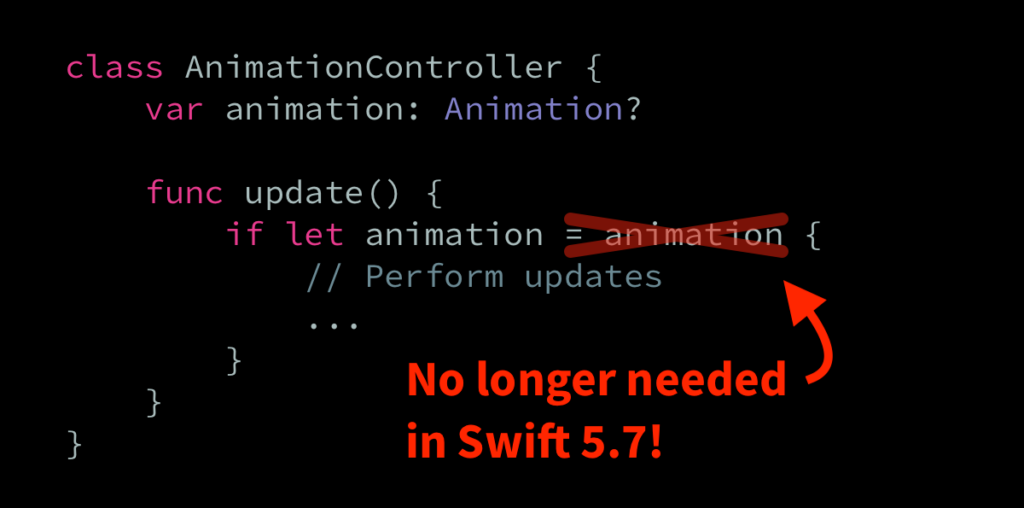Swift 5.7 introduces a new, more concise way to unwrap optional values using if let and guard let statements. Before, we always had to explicitly name each unwrapped value, for example like this:
class AnimationController {
var animation: Animation?
func update() {
if let animation = animation {
...
}
}
}But now, we can simply drop the assignment after our if let statement, and the Swift compiler will automatically unwrap our optional into a concrete value with the exact same name:
class AnimationController {
var animation: Animation?
func update() {
if let animation {
...
}
}
}Neat! The above new syntax also works with guard statements:
class AnimationController {
var animation: Animation?
func update() {
guard let animation else {
return
}
...
}
}It can also be used to unwrap multiple optionals all at once:
struct Message {
var title: String?
var body: String?
var recipient: String?
var isSendable: Bool {
guard let title, let body, let recipient else {
return false
}
return ![title, body, recipient].contains(where: \.isEmpty)
}
}A small, but very welcome feature. Of course, we still have the option to explicitly name each unwrapped optional if we wish to do so — either for code style reasons, or if we want to give a certain optional a different name when unwrapped.

